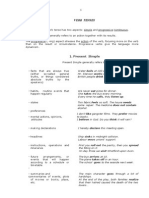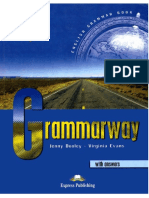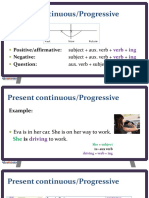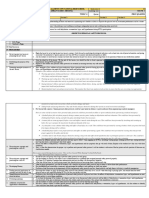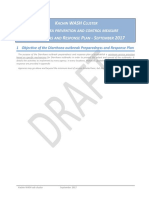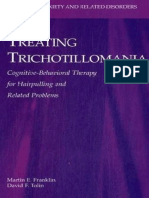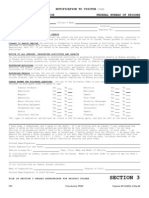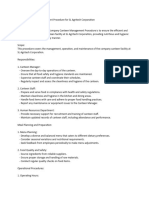0% found this document useful (0 votes)
59 views14 pagesPresent Simple and Continuous
The document provides an overview of the present simple and present continuous tenses in English, including their forms, uses, and rules for forming questions and negatives. It also covers exceptions, key words, and specific verbs that are typically used in the simple present tense. Additionally, it includes practice exercises and a brief section on the past simple tense and imperative sentences.
Uploaded by
Hani RagabCopyright
© © All Rights Reserved
We take content rights seriously. If you suspect this is your content, claim it here.
Available Formats
Download as DOCX, PDF, TXT or read online on Scribd
0% found this document useful (0 votes)
59 views14 pagesPresent Simple and Continuous
The document provides an overview of the present simple and present continuous tenses in English, including their forms, uses, and rules for forming questions and negatives. It also covers exceptions, key words, and specific verbs that are typically used in the simple present tense. Additionally, it includes practice exercises and a brief section on the past simple tense and imperative sentences.
Uploaded by
Hani RagabCopyright
© © All Rights Reserved
We take content rights seriously. If you suspect this is your content, claim it here.
Available Formats
Download as DOCX, PDF, TXT or read online on Scribd
/ 14







































